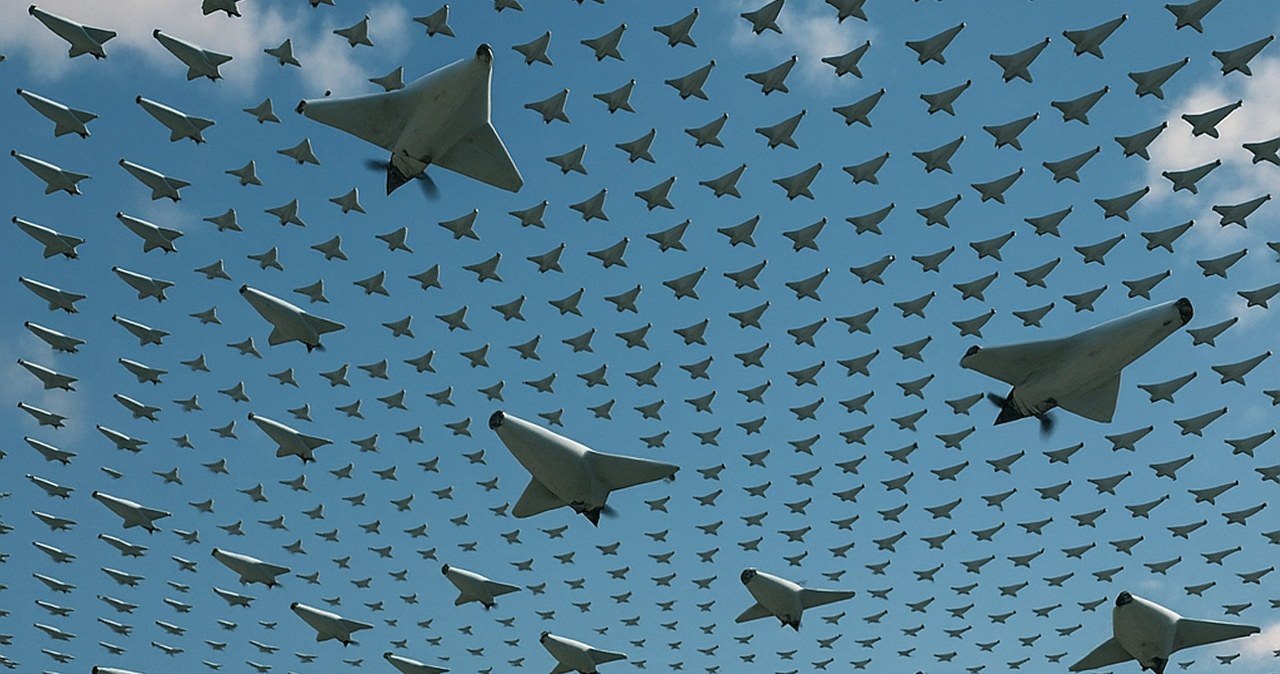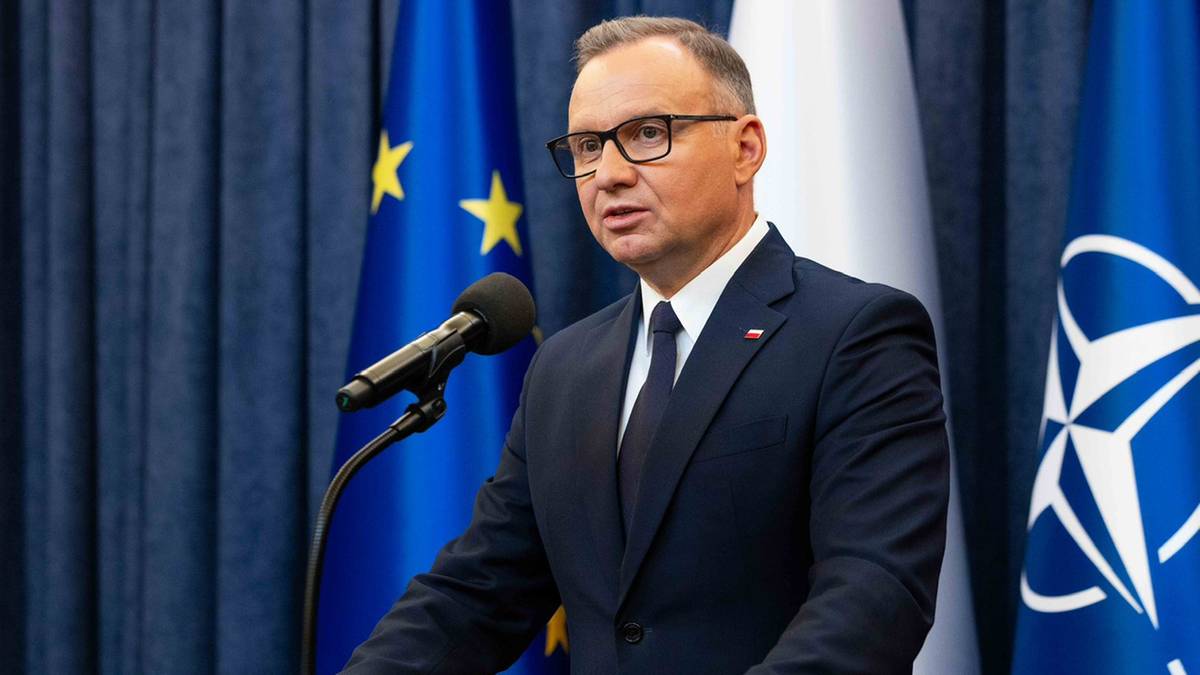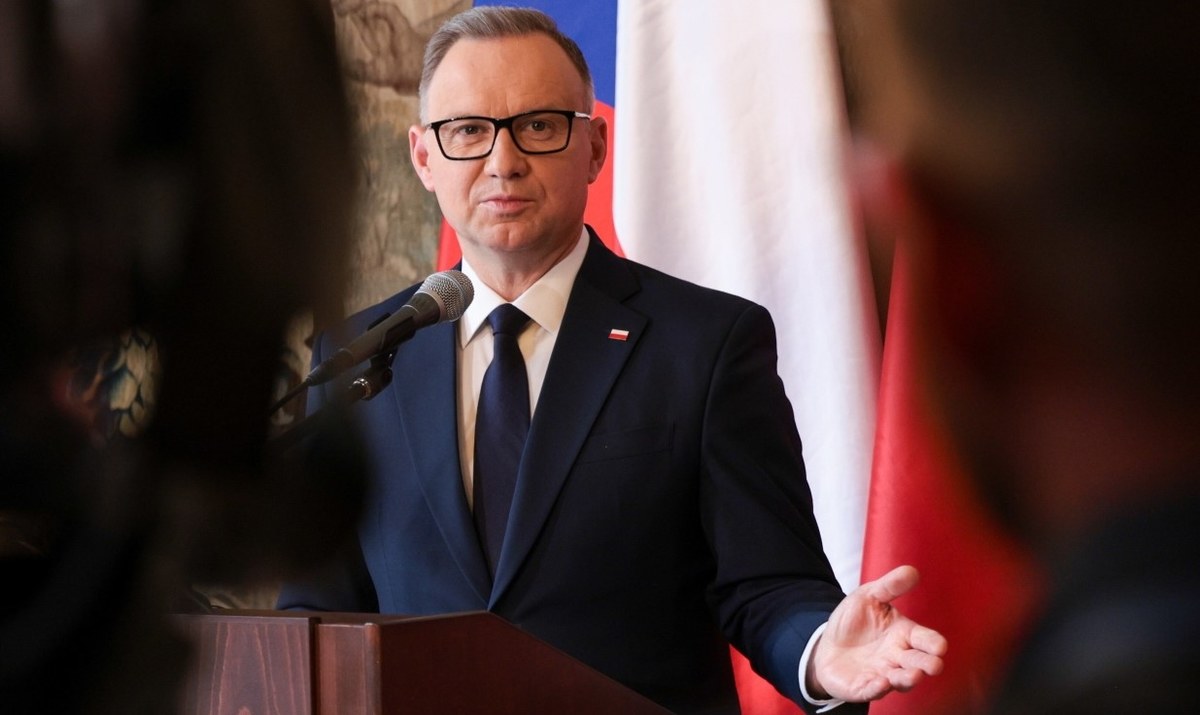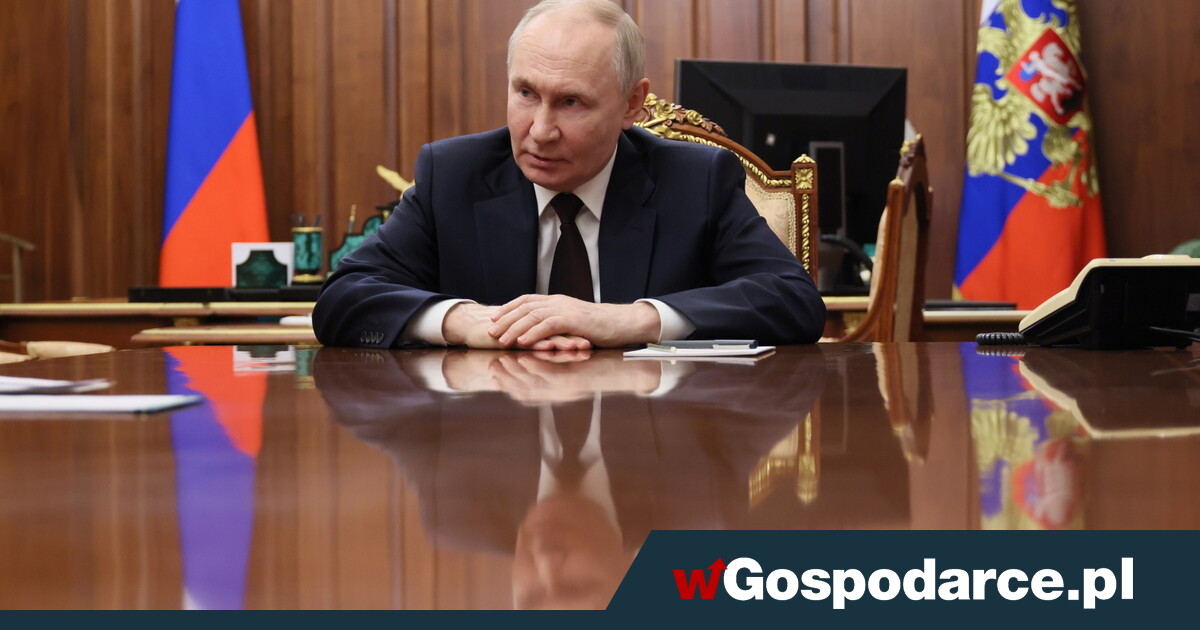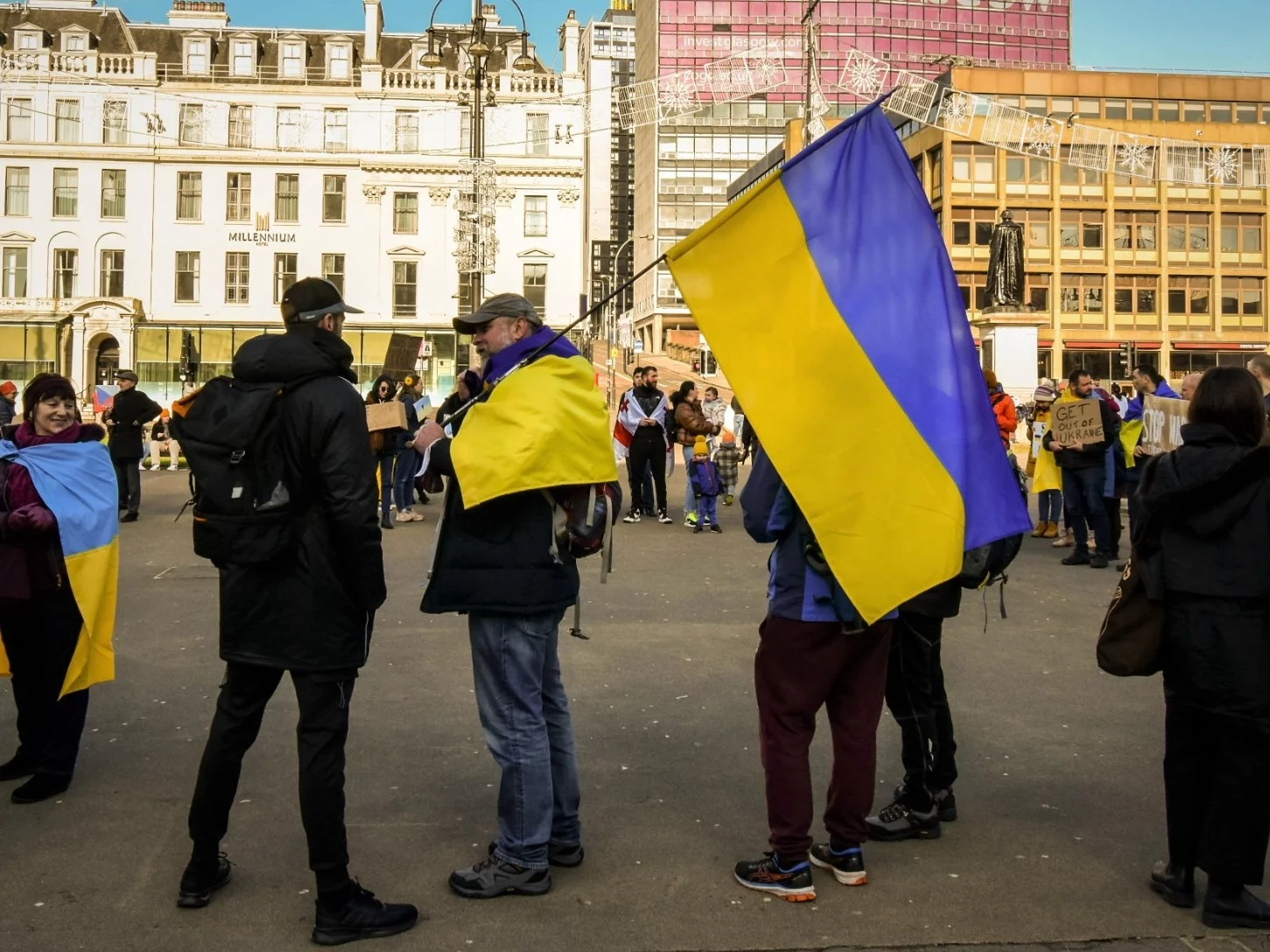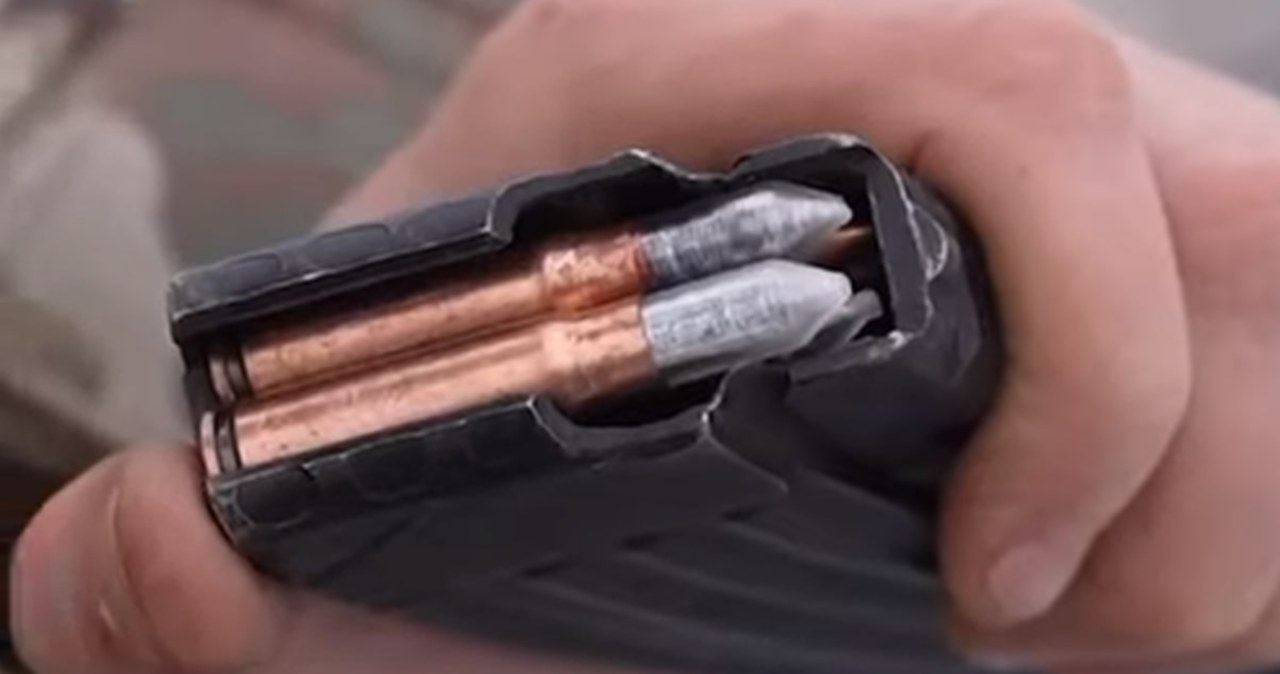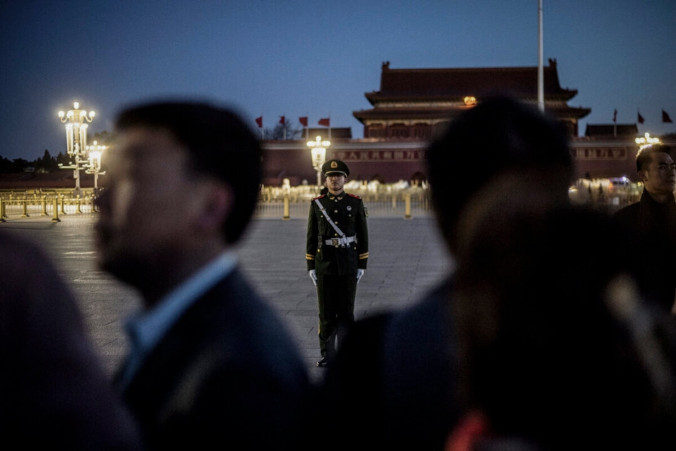What happened in the Presidential Palace, in Polish services and in the military after the war in Ukraine? Was there a real relationship between Andrzej Duda and Volodymyr Żelenski? How did petty conflicts break into large politics after a fewer months of playing together, and what resulted?
Unknown facts, scenes of talks with Ukrainians, Americans, Germans, show both greatness and the smallness of Polish politics – From the Introduction.
Red and Black publications thank you for sharing a passage for publication. We encourage you to read the full book.
Minister Y: – unusual was the outbreak of war, very abstract. individual from the AW calls us and says that “it has already begun” that there has been a war, but there has been no sign of war along the way. Nobody built blockposts. Baricadas were not raised. Just a life. We were on the border about 24 hours ago, or 23 hours ago. In Poland in McDonald's we inactive ate the set.
Minister X: – After that trip, I was so tired. I went to sleep right away. I slept through the outbreak of war. I wake up, I look at the phone, 20 calls. I slept for war. At that time, the gathering was already underway. These were the war offices that lasted for weeks or even months. The President, the Prime Minister, the chief ministers, the heads of service. I went to the NSA. I said I was sorry, I sat down. I thought Duda would rip me apart, I was panicked. He sits so dreary, he gets stressed out, he gets so dreary. I'm reasoning there's gonna be a fight over late. But I'm prepared for that. I asked for a voice and attacked myself: “Let them wake me next time.” And Duda says to me, "Stop, calm down, we're all nervous, what are you doing?"
Minister Y: – Duda was 1 of the first people Zelenski called after the war. And possibly it was his first abroad telephone call. I think he just wanted to talk to Duda these days. To complain. "Man, I'm here, and this ch... attacks."
Zbigniew Parafianowicz: Did Poland learn about the invasion of its neighbour in time or later than everyone else?
Diplomat A:
– Let us start with the fact that no 1 in Europe believed in full-scale war and marched on Kiev. Whoever said he knew is lying.
We all found out on February 23, 2022, a fewer hours before the invasion. Two, possibly 3 days before this date, the Americans gave us precise intelligence about the fact that orders were sent to the tactical groups in Belarus and in the circuits bordering Russia with the date of the attack. But it wasn't a confirmation that the war would go off. At the time, we didn't believe the Americans. We remembered lies about Saddam Hussein's weapons of mass destruction. The fact is that only the Americans and the British had cognition of the attack. Especially the British are well-oriented. They have good sources. They're conducting advanced intelligence operations. another countries have intelligence specializations. They've got cutting knowledge. So do we. Americans and British put together. We have fragments.
Intelligence Officer: – Final certainty, hours before the attack, gave us our services. We are listening to what is happening in the East. It's not that we know what they're talking about. It's about tracking the signal. Intelligence gave us information that radio silence was introduced. Radio silence has been introduced throughout the dimension of the possible front. besides from Belarus. What does that mean? It's just that the communications didn't happen with devices. Orders came in sealed envelopes in writing through couriers with tasks to carry out. It's an old-fashioned ride. Each tactical relation in a certain short time was to proceed with these orders. We knew we had a fewer to a twelve hours.
Important authoritative of the Chancellery of the Prime Minister: – I went to the Prime Minister and Deputy Prime Minister Jarosław Kaczyński, who was liable for safety at the time. Both were not peculiarly surprised.
Kaczyński was 1 of the fewer who believed in a full-scale war.
We were guided by analyses of our services and troops that there would be war, but it would be conducted on Donbasa and in the south of Ukraine. We were assured that Russia wanted to penetrate the mainland corridor to Crimea, occupy Donbas. The marking of the impact from Belarus was a distraction.
A man in close proximity to the president: – The deficiency of full-scale belief in war does not compromise us. Nobody in Europe believed in this option.
Shortly before the detonation Morawiecki had specified a large tour of Europe to convince that hard times were going and that the attack could begin. He came back terrified that no 1 would take it seriously. "They do not believe in any war," he said.
Important authoritative of the Chancellery of the Prime Minister: – Information about radio silence immediately went to Kaczyński and Morawiecki. We knew the Russians were coming in. In the morning, we organized the first gathering of the crisis team. In fact, in situations of this kind there are no clear procedures to manage it. We forged it in battle.
Diploma B: The Ministry of abroad Affairs was amazed on 24 February. Kaczyński and Morawiecki did not share their data with Rau (Zbigniew Rau – Polish abroad Minister – ed.). The minister had information from the press.
Important authoritative of the Chancellery of the Prime Minister: We left KPRM before midnight on 23 February. We set up a crisis management squad and launched a state safety committee. The first meetings were held in the morning. Later, there was a gathering with the president at BBN.
The military were very skeptical of developments. The army, but besides most politicians and servicemen did not believe that Kiev would hold.
A multi-kilometre column of Russian troops later went to the capital. There were no wise ones to tell how the situation would develop. We learned everything. It was a war without precedent.
Intelligence Officer: “Intuitively, utilizing Polish electronic intelligence, we determined the location of Russian and Ukrainian units. However, we did not have full cognition of the degree to which Kiev is surrounded and whether access to the city was closed. At least we didn't know that at first. We had our sources in Ukraine that had to control to war mode. It didn't take long. We had intelligence people in Kiev who collected data on the situation in and around the city. They were there all along. They provided cognition from the beginning. but they were dry facts that neither politicians nor military could yet decently interpret. erstwhile we recovered from the shock, this information was truly advanced quality. What seems to be irrelevant present was crucial. We had to know what the city looked like from the inside. How many blocs there are and what forces the cities will defend. We had to know if there was a will to fight and what tactics would be applied.
Whether the Ukrainians defend the city or part ways. Our intelligence people mapped the city. There is simply a simple way to find places where there are, for example, blockposts or larger opposition points. Just take an empty iPhone image in your pants pocket. specified photograph is immediately sent to iClood with a precise Ukrainian or Russian position. This is the map of the city. The net was online in Kiev. Since the net worked, the basic communicators with good safety features and encrypted emails – Signal, ProtonMail or Tutanota. Everything worked, and if anyone read it, it was an ally. You could have worked. Under dynamic conditions, where everything changes from hr to hour, specified communication channels cannot be despised. There is simply a choice – either we usage what is or we have no information.
Minister X: “The military and the service provided information on the advance of the offensive. On the first day, despite Zelenski's telephone call to Duda, it was unclear where he was. Whether he stayed in Kiev or, for example, left for Lviv. It later turned out that under its office there is simply a bun-heart deep underground, connected by a strategy of passage with the subway. That's where they served. any of them sat there for weeks. Deputy Chief
Whether the Ukrainians defend the city or part ways. Our Intelligence people mapped the city. There is simply a simple way to find places where there are, for example, blockposts or larger opposition points. Just take an empty iPhone image in your pants pocket. specified photograph is immediately sent to iClood with a precise Ukrainian or Russian position. This is the map of the city. The net was online in Kiev. Since the net worked, the basic communicators with good safety features and encrypted emails – Signal, ProtonMail or Tutanota. Everything worked, and if anyone read it, it was an ally. You could have worked. Under dynamic conditions, where everything changes from hr to hour, specified communication channels cannot be despised. There is simply a choice – either we usage what is or we have no information.
Minister X: “The military and the service provided information on the advance of the offensive. On the first day, despite Zelenski's telephone call to Duda, it was unclear where he was. Whether he stayed in Kiev or, for example, left for Lviv. Later it turned out that under its office it has a bunker deep underground, connected by a strategy of crossing with the subway. That's where they served. any of them sat there for weeks.
The deputy chief of the Zelenski administration Andrii Sybiha later said that he had forgotten what daylight looked like. In time, they got utilized to it, but on the first day, Sybiha was shaken. He asked for anti-aircraft missiles and fuel supplies. He was being chaotic. It was apparent that the Ukrainians themselves do not know the situation they are in.
Minister Y: The atmosphere was alternatively grave. A pessimistic army. They said, “There will be no wonder over Dnieprem.”
A man in close proximity to the president: – On February 26, we besides began to analyse the principles of succession of power in Ukraine in the event of the death of Zelenski. What will be the function of the Prime Minister and president of the ultimate Council? What's the large deal? On the second day of the war, almost everyone was certain that Ukraine would not survive. Although there was a view that if it maintained part of the territory, it would become postwar Croatia on steroids. We were besides seriously considering the likelihood of Belarus joining the invasion. If that were the case, we were considering the creation of diversion groups composed of representatives of the Belarusian diaspora, which would operate in the back of the Lukashenko army and impeded his war. We talked to the Americans about it.
Our concerns about Belarus have proved excessive. Lukashenko feared for his life. In early March he probed the escape from Minsk. He kept in contact with us and explored whether we would let him come to Poland and fly distant into the planet from here.
He knew that he would not leave Minsk by plane without Putin's permission. due to the fact that Putin has him in Russian air defense. All over Belarus there were already Russian troops, including S-300 or Buk sets.
Minister X: – To be honest, these military analyses from the first days of the war were very disappointing. The general's not showing off. It's actual to say that generals can't be turned over to war cases.
I did not want to know all this about the Polish army, what I learned in the first days of the war. If it were on us, I don't know if we'd be as strong as the Ukrainians.
Rather average analyses and ubiquitous failure prevailed in the military. Nothing can be done. Always a million obstacles. You can't do that due to the fact that there are a million obstacles. That too, due to the fact that 2 million. Meanwhile, the Ukrainians held on. They didn't quit cities. It turned out that the threat was not a military weakness, but besides in the West, but besides in Poland, the drive for a truce.


